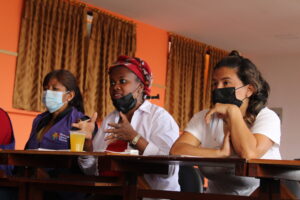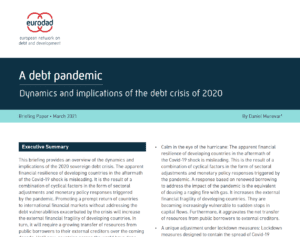In front of this reality, affecting people’s wellbeing and rights every day, international financial institutions are looking at the structural sovereign debt problems that many countries are facing as if it were a mere problem of liquidity, since there hasn’t been the series of defaults that some predicted after the Covid-19 pandemic. The reality is that countries in the global south are doing whatever it takes to keep repaying their debts, even if it’s by implementing draconian austerity measures, in many cases following International Monetary Fund (IMF) conditionalities and advice. Debt service payments are indeed drowning out vital public spending. Domestic and external debt service equals the combined total spending on education, health, social protection and climate in low- and middle-income countries, and exceeds it by 50 per cent in Africa. It is 2.5 times the spending on education, 4 times the spending on health and 11 times the spending on social protection.
As bilateral and private lending decreases, multilateral development banks and the IMF are increasing their lending. With no other instrument on the table, multilateral lending is likely to be used to repay private creditors, as well as bilateral creditors such as China. As in the past, we will probably see in the coming years an increase in countries facing problems repaying multilateral debts. This is problematic given that neither the IMF, the World Bank nor other multilateral development banks (MDBs) participate in debt restructurings. Furthermore, as countries increasingly turn to the IMF and MDBs for financial support, they will have to accept the conditionalities imposed by these institutions, which are still focused on fiscal consolidation (including public spending cuts and regressive taxation, among other measures) and market solutions (including promotion of public-private partnerships and deregulation), thus limiting even more the public investment to advance the SDGs, tackle gender inequalities or take climate actions.



